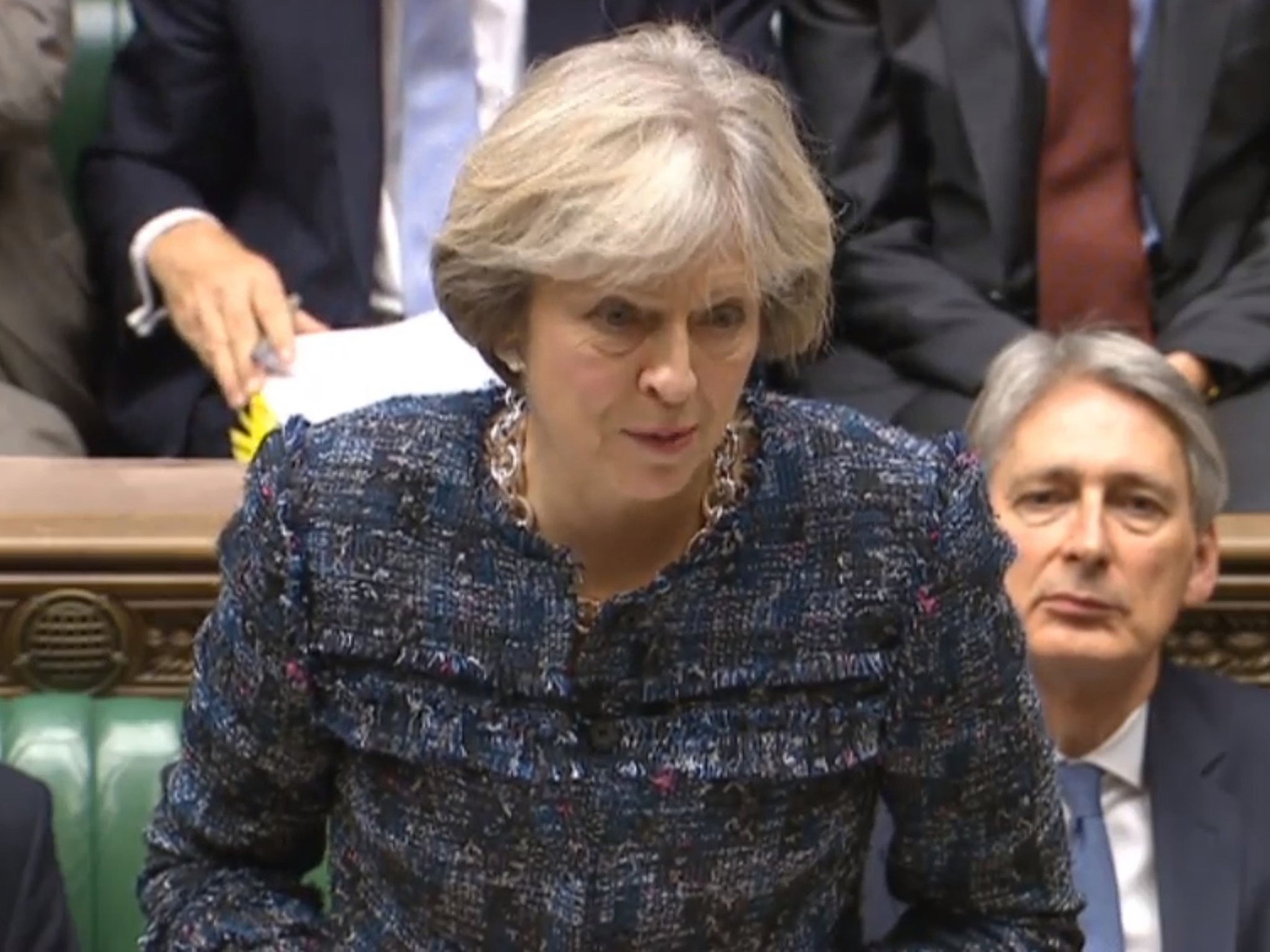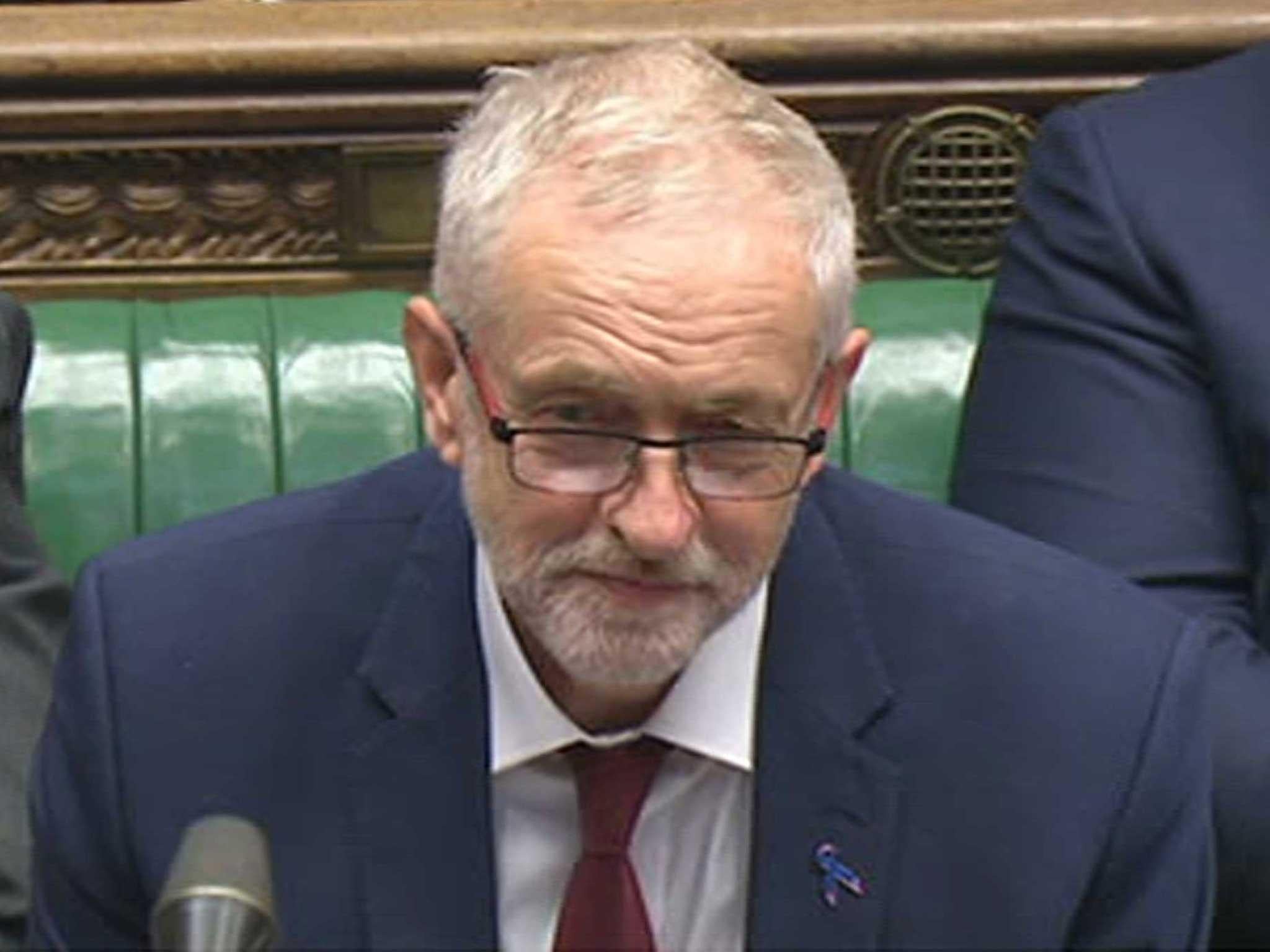Labour rubbishes Theresa May’s claim of ‘£10 billion extra for the NHS’
A Health Select Committee report contradicted the Government's claim

Theresa May has been accused of plunging the NHS into the “worst financial crisis in its history” as Labour rubbishes Tory claims that the Government provided an extra £10 billion for the health service.
Ms May repeated the claim about providing £10 billion for the NHS at Prime Minister’s Questions on Wednesday after Labour leader Jeremy Corbyn criticised the Government’s record on running the health service.
“We asked the NHS itself to come up with a five-year plan, and we asked the NHS itself to say what extra funding was needed to deliver on that,” she said in defence of the Government’s record.
“The NHS came up with its five-year plan, led by Simon Stevens as its chief executive. He said that £8 billion was needed. We are giving £10 billion of extra funding to the NHS.”
Mr Corbyn responded that “in six years, the NHS has gone from surplus to the worst crisis in its history”.
After PMQs had finished Labour pointed to a July analysis by the Health Select Committee, which found that the £10 billion claim “does not, in our view, accurately reflect the impact of the spending review on health expenditure”.
Assessing the claim about extra NHS cash the committee said the claimed £10 billion figure, first cited by George Osborne, was more like £6 billion or £4.5 billion depending on the period looked at.
The committee however said in a report released in July that the £10 billion figure was misleading because it did not take into account cuts to rest of the health budget that lay outside NHS England, and did not take into account inflation.
Areas cut by the Government include preventative public health measures and training for some medics – despite a claim by the Ms May’s government now that it would invest in local doctors. Ms May is said to have told NHS England chief Simon Stevens that there would be no extra cash for the NHS.

“The overall impact is that total health spending—the Department of Health’s budget—will increase in real terms, at 2015–16 prices, by £6 billion between 2014–15 and 2020–21,” it said in a report released in July.
“If the spending review period is considered—2015–16 to 2020–21—that increase is £4.5 billion. We cover this point in greater detail later in this report.”
Explaining the committee’s reasoning, the report said: “There are two reasons why this figure does not, in our view, accurately reflect the impact of the Spending Review on health expenditure.
“The first is that the £10 billion figure is expressed in 2020–21 prices, rather than the current (2015–16, the time of the Spending Review) prices which would normally be expected to have been used in the calculation of such figures.
“At 2015–16 prices, NHS England’s budget will rise by £9.5 billion between 2014–15 and 2020–21. The second reason is that the £10 billion figure refers to the additional sum allocated to NHS England, not to total health spending.
“Part of the increase in funding to NHS England is being funded by reductions in areas of health spending which fall outside NHS England’s budget, such as the public health grant to local authorities, and education and training funded through Health Education England.
“Those reductions amount to £3.5 billion in real terms, at 2015–16 prices, between 2014–15 and 2020–21.”
Jeremy Corbyn told the House of Commons on Wednesday: “NHS trusts are in a financial crisis. According to NHS Providers, it seems to be the worst financial crisis in NHS history: 80 per cent of acute hospitals are now in deficit. There was a time, in 2010, when the NHS was in surplus. What has happened?
“In six years, the NHS has gone from surplus to the worst crisis in its history. A total of £3 billion was wasted on a top-down reorganisation that no one wanted, and Simon Stevens made it very clear to the Select Committee yesterday that he did not believe that NHS England had enough money to get through the crisis that it is facing.”
Labour also released a dossier on Wednesday noting that the NHS trusts in most Cabinet members' consituencies were in deficit.
Mr Stevens yesterday told the Health Select Committee at an open hearing that NHS England “didn’t get the funding we requested” for the whole spending period.
“As a result we have a bigger hill to climb. It’s going to be more of a challenge in 2017-18, 2018-19 and 2019-20 [than NHS leaders expected],” he said.
Join our commenting forum
Join thought-provoking conversations, follow other Independent readers and see their replies
Comments
Bookmark popover
Removed from bookmarks